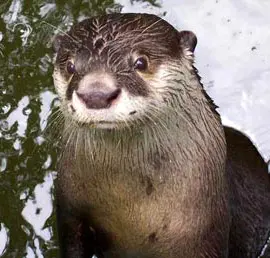
Nature presents humanity with countless mysteries, and we tirelessly work to unravel them one by one. The otter, which inhabits rivers, primarily feeds on fish. Interestingly, there are no recorded instances of otters eating anything else during the winter months. However, come spring, this little creature often turns to grass, and when berries appear, it eagerly leaves the water to feast on them. Why does the otter seek out plant-based food in the spring and summer when it can easily survive without it in winter? A mystery, indeed.
But this mystery has been solved. The otter consumes fish whole—scales and bones included. In winter, its stomach produces a sufficient amount of hydrochloric acid to dissolve all the bones completely. As spring and summer roll around, the production of acid decreases, leading the otter to suffer from the accumulation of undigested fish bones in its stomach.
That’s when it starts to diversify its “menu.” The grasses and berries provide the necessary chloride for the otter’s body to produce hydrochloric acid. This is why it devours them with such enthusiasm.
